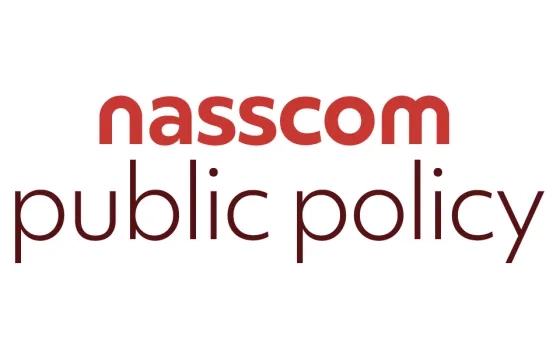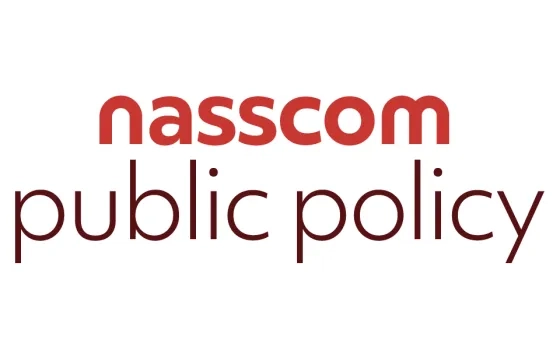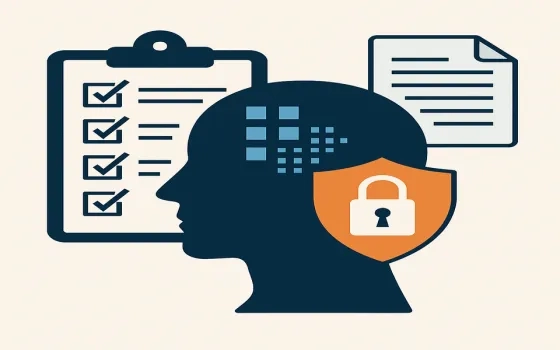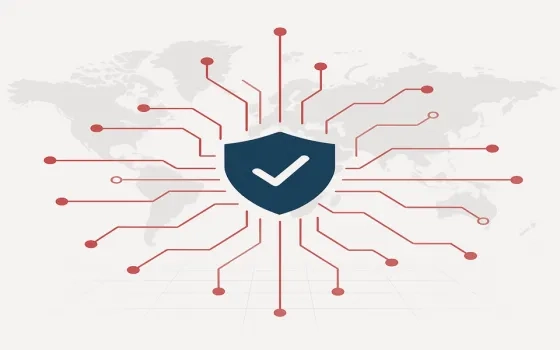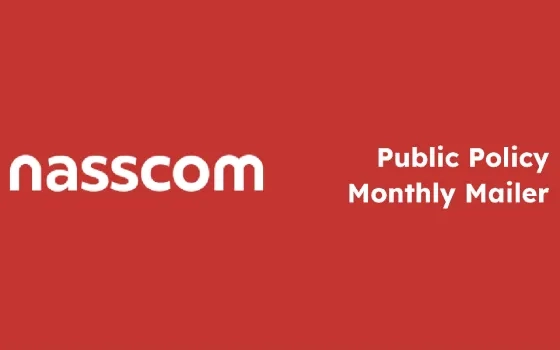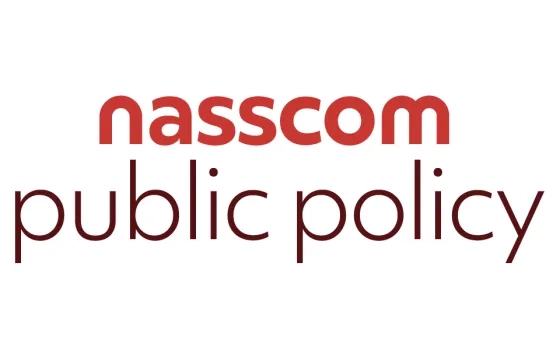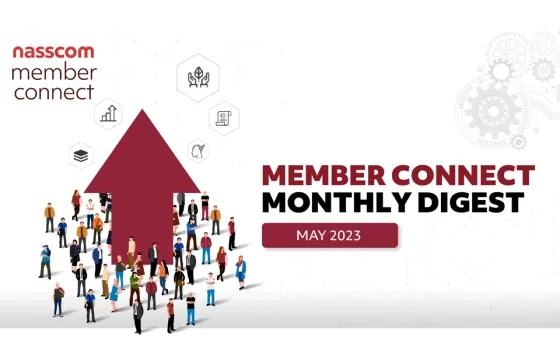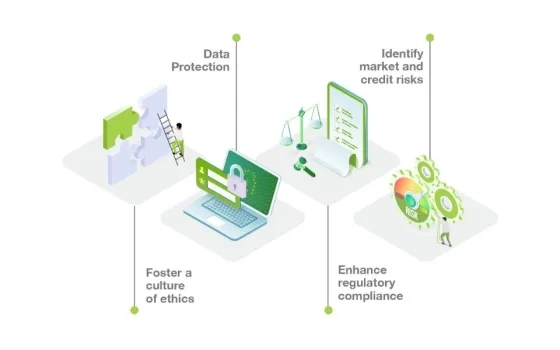 |
 |
| |
| |
| Issue of notification to allow Work from Home for 50% employees of units in Special Economic Zones (SEZs) |
| |
| The Ministry of Commerce and Industry (MoCI) has issued Notification No. G.S.R 576(E) dated July 14, 2022 to notify amendments to SEZ Rules to enable long term hybrid work model or Work from Home (WFH) for units in SEZs. |
| |
| While the amendment to allow WFH for 50% employees in SEZs is a positive move, the notification imposes procedural and administrative compliances which are impractical and burdensome. For example, it would not be possible for Units to pre-determine which employees would WFH and therefore there is a need for clarity that the proposal for WFH can cover all employees though at a point in time, the employees doing WFH shall be based on the applicable threshold. Given that the industry is operating with 80-90% WFH at present, there is also a need for clarity that the offices of the Development Commissioners will provide permissions to gradually come to the level of 50% WFH so that the industry working is not disrupted. There are also concerns on the requirement to seek approval for even 50% WFH as that might make the process time consuming and unpredictable. There are few other operational issues around treatment for new employees, process for endorsement for removal of laptops etc. |
| |
| We have highlighted all the concerns to the MoCI and the Government is examining these favourably and we anticipate that a clarification will be provided very soon to address all the operational issues as well as enable a harmonised implementation of the Notification across the country. |
| |
| Read More |
|
| |
|
|
|
|
 |
| |
| |
| Goods and Services Tax (GST): Representation on Online Information and Database Access or Retrieval (OIDAR) services for B2C supplies |
| |
| We understand that the government is considering a retrospective amendment to OIDAR provisions which would result in non-resident OIDAR service provider being liable to pay GST on all supplies made to "GST unregistered customers", irrespective of the purpose for which the services have been consumed by unregistered Indian recipient. In this regard, we have made a representation to GST officials requesting that the principle of fairness and lex prospicit non respicit, i.e., the law looks forward and not backward, should be considered. |
| |
| Read More |
| |
| |
| |
| Notification of Haryana State Data Centre Policy, 2022 |
| |
| Haryana Government has notified the Haryana State Data Centre Policy, 2022 (Policy) with the vision to make Haryana a preferred destination for the data centre industry and establish the state as a global data centre hub. This Policy is valid for 7 years from the date of notification or date of any new policy/ amendment, whichever is earlier. The policy seeks to provide stamp duty reimbursement, electricity duty exemption, continuous water supply, declare data centre as a separate infrastructure industry, employment generation subsidy, amongst others |
| |
| Read More |
| |
| |
| |
| Haryana Labour Department: Notification regarding conditions for providing exemption in the night shifts by women employees |
| |
| The Haryana Labour Department has issued a notification specifying conditions for employing women in night shifts with respect to the security and safety of women employees. The notification includes certain obligations on establishments such as installation of CCTV cameras in transportation vehicles, ensuring that the minimum strength of women employees working in the night shift is 2/3rd of the total strength and women in the supervisory staff in the night shift are not less than 1/3rd of the strength of the supervisors. |
| |
| NASSCOM has made a representation with suggestions to ensure safety and security of women and simultaneously ensuring ease of doing business (EoDB). The representation also highlights certain unintended consequences of the notification such as the adverse impact on the hiring and promotion of women employees, as well as the loss of flexibility to work from home for women employees. For more information, kindly write to sudipto@nasscom.in and dagarwal@nasscom.in. |
| |
| |
| |
| Reserve Bank of India (RBI): Feedback on Draft Master Directions on Outsourcing of IT Services |
| |
| We submitted our feedback on RBI's draft Master Directions on Outsourcing of IT Services. Our key recommendations include - a) the transition time frame to the guidelines should be between 18-24 months to ensure that existing arrangements are revised in compliance with the directions; b) guidance should be provided to REs to identify material workloads to focus on material IT Services; c) limiting requirement to seek information from service providers to material third parties; and d) the breach reporting mechanisms and timelines should be calibrated based on materiality. |
| |
| Read More |
| |
| |
| |
| Feedback on the proposed amendments to the Information Technology (Intermediary Guidelines) Rules, 2021 |
| |
| We submitted our feedback to the MeitY on the proposed amendments to the Information Technology (Intermediary Guidelines) Rules, 2021. We have highlighted that the reform of India's intermediary liability regime should focus on two key outcomes - a) calibrated and proportionate due diligence obligations on intermediaries by differentiating between them based on their role, services, size, and impact in the market; and b) policy certainty, clarity in expected compliances and a risk-based framework. We also reiterated, our past submissions on the IT Rules, 2021 on the requirement for MeitY to release Standard Operating Procedures on various aspects of the IT Rules, 2021. |
| |
| Read More |
| |
| |
| |
| GST: Representation on 2-Factor authentication enabled for e-waybill and e-invoice system |
| |
| The National Informatics Centre (NIC) has enabled 2-Factor authentication for generation of e-waybill and e-invoices which require taxpayers to provide a One Time Password (OTP) for logging into the portals. This is unworkable in situations where taxpayers have several GST registrations across India. In this regard, we have made a submission to GST officials requesting them to provide an identifier along with the OTP. This will help the taxpayers to track the GSTIN to which the OTP pertains to. |
| |
| Read More |
| |
|
|
|
|
 |
| |
| |
| NASSCOM & the Dialogue - Joint Policy Brief Series on Data Protection |
| |
| We have released the first policy brief which discusses the frameworks for inter-sectoral regulation and coordination under the (Draft) Data Protection Act of 2021 (DPB 2021). We make four suggestions: (1) harmonising existing and proposed allied laws (2) cooperating on jurisdictional overlaps and enforcement actions (3) ensuring a uniform and holistic appreciation of new technologies (4) integrating existing and proposed grievance redressal mechanisms. Over the coming weeks, we will be collaborating with the Dialogue to release a series of policy briefs on the DPB 2021. |
| |
| Read More |
|
| |
|
|
|
|
|
|
| |
| |
| Call for inputs: Department of Telecommunications (DoT) paper on a new telecom law |
| |
| The DoT has released a consultation paper on the need for a new legal framework governing the telecommunication sector in India. The Paper states that the extant legal framework is outdated and requires consolidation, and that any new law should be future-ready, drafted in plain and simple language and in-line with global best practices. The paper identifies the following key areas - a) standards, public safety, and national security; b) expanding the scope of the Universal Service Obligation Fund with the Telecommunication Development Fund; c) addressing insolvency related issues in the telecom sector; d) allowing for licensees to comply with restructuring schemes as per the Companies Act. |
| |
| Kindly write to varun@nasscom.in, sudipto@nasscom.in and apurva@nasscom.in by August 20 with your comments. |
| |
| Read More |
| |
| |
| |
| RBI: Call for inputs on Payments and Settlements Systems Act, 2007 |
| |
| The RBI, in its Payment Visions Document, noted that when the Payment and Settlement Act was legislated in 2007, digital payments ecosystem in India was at a nascent stage. Considering the developments in the payments ecosystem including the domestic and cross-border aspects of it, the RBI is considering a comprehensive review of legislative aspects of Payment and Settlement Systems Act and the regulations therein. In this regard, should you have any inputs on the amendment of Payment and Settlement Systems Act, kindly write to apurva@nasscom.in by August 16. |
| |
| |
| |
| Ministry of Health and Family Welfare: Draft New Drugs, Medical Devices and Cosmetics Bill, 2022 |
| |
| The Ministry of Health and Family Welfare (MoHFW) has released a draft of the New Drugs, Medical Devices and Cosmetics Bill, 2022 (Bill) for public consultation. Through the Bill, the MoHFW aims to review obsolete laws and update existing laws in order to keep pace with changing times, need and technology. The Bill proposes to replace the existing Drugs and Cosmetics Act, 1940. It includes inter alia provisions related to regulation of online sale of drugs, medical management and compensation for injury or death related to clinical trials, and the creation of a Medical Devices Technical Advisory Board. Kindly write to dagarwal@nasscom.in, sudipto@nasscom.in and garima@nasscom.in by August 8 with your comments. |
| |
| |
| |
| Call for Inputs: Public Consultation on Pillar One: Progress Report on Amount A |
| |
| The Organisation for Economic Cooperation and Development (OECD) has released a public consultation document on the progress report on Amount A of Pillar One. The progress report contains "domestic model rules" for the different building blocks relating to the new taxing right under Amount A. It also includes proposals for marketing and distribution safe harbour and elimination of double taxation. The OECD has sought feedback from stakeholders on the overall design of the Amount A rules as well as specific building blocks before reaching final agreement. Kindly write to tejasvi@nasscom.in by August 10 with your inputs. |
| |
| Read More |
| |
| |
| |
| Call for Inputs: Proposed changes in GSTR-3B |
| |
| The GST Council, in the recently concluded 47th meeting, has approved comprehensive procedural changes in Form GSTR-3B. These includes allowing negative values in GSTR-3B, auto-population of values from GTSR-1 into GSTR-3B in specific rows, amongst others. In this regard, Central Board of Indirect Taxes (CBIC) has released a notice requesting for suggestions from stakeholders on comprehensive changes in FORM GSTR-3B. Kindly write to tejasvi@nasscom.in by September 22 with your comments. |
| |
| Read More |
| |
| |
| |
| Call for inputs: Consultation Paper on Rationalisation of Entry Fee and Bank Guarantees |
| |
| The Telecom Regulatory Authority of India (TRAI) has released a consultation paper on the rationalisation of entry fees and bank guarantees. Currently, entry fees are one-time amounts paid by applicants for new telecom licenses (either the unified license or the virtual network operator license), while existing telecom licenses envisage two types of bank guarantees being deposited (financial and performance bank guarantees). The consultation paper discusses the need for rationalising these obligations and presents several policy options on which views are sought. Kindly write to varun@nasscom.in, sudipto@nasscom.in and apurva@nasscom.in by August 18 with your comments. |
| |
| |
| |
| Call for inputs: Telangana Agricultural Data Management Policy, 2022 |
| |
| The Government of Telangana has released the draft of the Telangana Agricultural Data Management Policy (ADMP) for stakeholder consultation. The objective of the Policy is to ensure that agricultural data is managed efficiently for the advancement of the agricultural sector. Key features of the Policy include - a) agricultural data has been categorised into personal data, open data and anonymised data; b) an inter-department committee (IDC) will be setup to specify purposes for which data may be processed; c) data governance frameworks will have to be formulated by the agricultural information users and service providers. Kindly write to apurva@nasscom.in and varun@nasscom.in for more information. |
| |
| Read More |
| |
| |
| |
| RBI: Discussion Paper on Climate Risk and Sustainable Finance |
| |
| The RBI, pursuant to the announcement made in its Statement on Developmental and Regulatory Policies, has released a discussion paper on climate risk and sustainable finance (Discussion Paper). The Discussion Paper provides for broad guidance for regulated entities (REs) to have appropriate governance, strategy to address climate change risks, and risk management structure to effectively manage them from a micro-prudential perspective; and explore how forward-looking tools like stress testing and climate scenario analysis can be used to identify and assess vulnerability in REs. Kindly write to apurva@nasscom.in by September 15 with your comments. |
| |
| Read More |
| |
|
|
|
 |
| |
| |
| RBI: Update on storing card-on-file data for guest checkouts and post-transaction activities |
| |
| The RBI has released a clarification on storing card-on-file (CoF) data for guest-checkout transactions and other post transaction activities. As an interim measure, it has allowed merchants or their payment aggregators (PAs) to store CoF data for 4 days in addition to the transaction data or till the settlement date, whichever is earlier. Post such settlement, the data has to be purged. It has also allowed acquiring banks to store CoF data for post-transaction activities till January 31, 2023. |
| |
| Read More |
| |
| |
| |
| Government of United Kingdom (UK): Release of Data Protection and Digital Information Bill |
| |
| The UK Government had, on July 18th, released a draft version of its bill to reform the UK data protection regime which is currently based on the European Union's General Data Protection Regulation (GDPR). The draft Data Protection and Digital Information Bill of 2022 proposes a number of changes aimed at simplifying UK data protection law on accountability, data transfer regulation, the legitimate interest ground, automated decision-making, use of personal data for research and statistics and the collection of consent through cookies. The Bill will go through several additional rounds of debate before being passed |
| |
| Read More |
| |
| |
| |
| NASSCOM's suggestions included in the Report of the Parliamentary Standing Committee on Commerce |
| |
| The Department related Parliamentary Standing Committee on Commerce has released its report on 'Promotion and Regulation of E-commerce in India' (Report). Various recommendations made by NASSCOM have been included in the Report. These include recommendations on measures related to Goods and Services Tax regime, measures to promote e-commerce and e-commerce exports, measures related to payments systems, and measures for the regulation of personal and non-personal data. |
| |
| Read More |
| |
| |
| |
| NITI Aayog: Report on Digital Banks - A Proposal for licensing and regulatory regime for India |
| |
| The NITI Aayog has released its report on 'Digital Banks - A Proposal For Licensing and Regulatory Regime for India' (Report). Key features of the Report include - a three step sequence towards a digital banking license i.e., through a restricted license followed by performance in RBI regulated sandbox; minimum paid-up capital of digital business banks in restricted phase has to be INR 20 crore, and may be increased to INR 200 crore when it achieves full scale; and that digital banks may have one place of business consistent with Banking Regulation Act's mandate. |
| |
| Read More |
| |
| |
| |
| RBI: Report on Benchmarking India's Payment Systems |
| |
| The RBI has released its report on Benchmarking India's Payment Systems. It provides a comparative position vis-à-vis payments' ecosystem globally for 21 countries. The key findings of the Report include: (a) the payment systems in India continued to demonstrate robust growth during the pandemic; (b) regulations continue to be strong in India with many proactive consumer centric initiatives being taken; (c) the COVID-19 pandemic related restrictions on movement in 2020 had an impact on usage of payment instruments at retail outlets and this may be one of the reasons for lower growth observed in card payments in India. |
| |
| Read More |
| |
|
|
|
|
|
|



